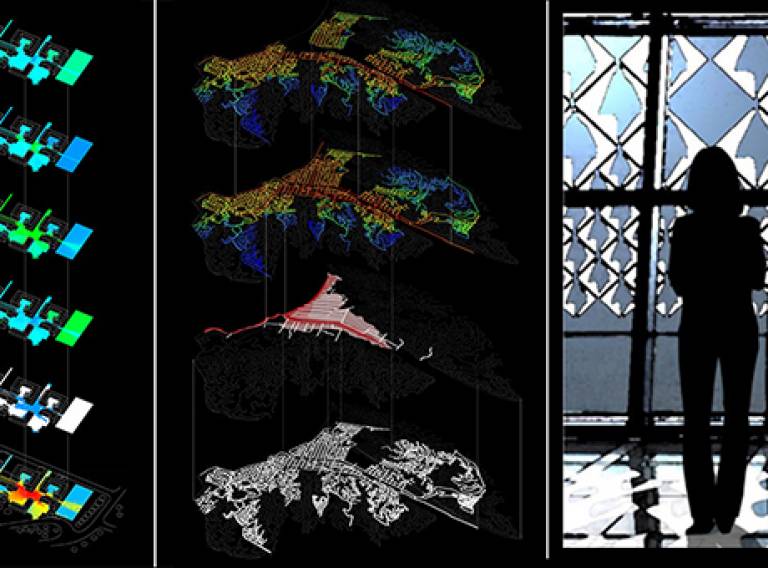Space Syntax Laboratory Research Seminar Series: Lukas Utzig, Valentina Marin and Sarah Mokhtar
10 January 2017, 4:00 pm–5:00 pm

Event Information
Open to
- All
Organiser
-
UCL
Location
-
Room 6.04, 22 Gordon Street
This joint session by Lukas Utzig, Valentina Marin and Sarah Mokhtar presents research conducted for their Master’s dissertations in the MSc Spatial Design: Architecture and Cities, and the MSc Architectural Computation. They have been awarded UCL's Turner Prize for best dissertations in 2016.
Lukas Utzig: Privacy and Interaction in Refugee Homes
The current forced migration process to Europe has once again increased the importance of the typology of refugee housing. While extensive research has been conducted on the built environment, it has not yet been applied to this typology. From this application, valuable knowledge on integrative design aspects, privacy needs and matters of spatial and social segregation among the inhabitants were derived. For the research that will be presented, observations and interviews have been conducted on site in three refugee homes in Germany. Static activity, perception of privacy and interaction with other inhabitants were examined, and related to computational Visual Graph Analysis of the housing schemes. The results show the hierarchy of spaces within the schemes and suggest, why they are used in their specific ways and what implications may be derived from that.
Valentina Marin: The Everyday City versus the Post-Disaster City - A configurational approach to the study of cities affected by tsunami events
The dissertation identifies that there is a need not only for studying the impacts of natural disasters on the built environment, but also for understanding how the built environment is able to cope with the negative effects after post-disaster scenarios, playing an important role in the resilience of cities. The research focuses on the analysis of the relationship between the structure and operation of everyday cities and their behaviour in tsunami situations, recognising the importance of the existing structure of cities in both soon-after tsunami and in post-tsunami scenarios. By adopting a spatio-configurational approach based on space syntax theories and techniques, the dynamics of urban structures, the distribution of urban centralities and the operating patterns of cities after tsunami events are analysed using two coastal cities located in a seismically active region as case studies.
From an urban planning perspective, the significance of this knowledge lies within the necessity of designing appropriate strategies that respond to the catastrophic situations more effectively. The findings lay the foundations for evidence-based strategic proposals to enhance urban resilience capacity of cities, support future planning decisions, preventative strategies, as well as influencing the city planning for normal situations, improving day-to-day conditions.
Sarah Mokhtar: Material-Based Actuation of Façades: An Adaptive Performative Approach
Adaptive facades actuated by material-based systems exhibit the limitation of a binary on/off output. This research explores how the possibility-space of outputs might be extended in the case of Shape Memory Alloys (SMAs). The application context of solar shading of buildings on an hourly time-base across seasonal variations is investigated with the aim of improvements to the environmental performance of buildings in a hot climate. A passive solar design of a modular system is developed for a shading component that can transform into different configurations driven by combinations and permutations of individual SMAs’ actuation in response to their sun exposure. The research findings suggest that the variety embodied through an integration between geometry, material, climate, and connections promote a diversity and adaptability of output, capable of producing compatible responses to desired objectives.
 Close
Close

